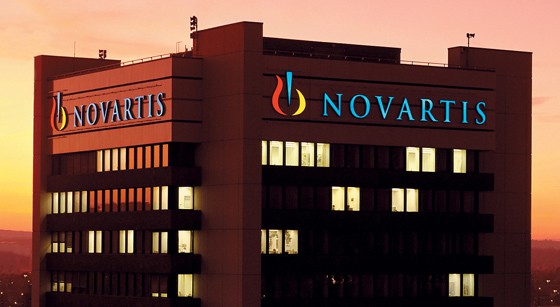
Novartis’ soon-to-be-divested vaccines business was the only division not to show revenue and earnings growth in the second quarter, while overall sales at the group rose 2 per cent to $14.64bn.
The vaccines unit – which will be transferred to GlaxoSmithKline (GSK) in the coming months – saw sales decline 13 per cent to $240m. Meanwhile, operating losses swelled by 25 per cent to $175m on the back of rising costs associated with the Holly Springs cell-based production facility for flu vaccines, which is not part of the GSK deal and has been put up for sale.
Chief executive Joe Jimenez attributed the decline to the timing of vaccine shipments, and pointed to upcoming positives such as the filing of its Bexsero meningitis B vaccine in the US in June, but the figures suggest Novartis may be exiting the business at the right time.
There was better news for GSK from Novartis’ consumer health division, which is also part of the $16bn asset transfer deal agreed earlier this year. GSK will have a 63.5 per cent equity interest in the unit once spun out, so will be relieved to see it pose a 5 per cent increase in sales to $1.1bn – the best performance of any of Novartis’ business units – as well as a leap in operating profits from $29m to $88m compared to the same period of 2013.
GSK is taking over control of Novartis’ consumer health manufacturing network, including a facility in Lincoln, Nebraska, which has been wrestling with quality issues that now seem to be getting back under control.
Novartis’ flagship pharma division managed a 1 per cent sales increase to $8.2bn, despite the continued impact of generic competition to blood pressure drug Diovan (valsartan) and Zometa (zoledronic acid) for cancers affecting the bone and the start of generic competition to leukaemia therapy Glivec (imatinib).
The first generic for Glivec is due in the US market in February 2016, although Novartis is hopeful that the oncology portfolio due to be acquired from GSK will mitigate sales declines in its cancer unit overall.
The company’s stable of growth products – such as oral multiple sclerosis (MS) therapy Gilenya (fingolimod) and cancer drugs Afinitor (everolimus) and Tasigna (nilotinib) – collectively contributed $3.4bn in revenues, up 15 per cent year-on-year.
Particularly in Europe, Gilenya has held up well in the face of competition from Biogen Idec’s recently-launched rival Tecfidera (dimethyl fumarate), said Jimenez, with sales up 29 per cent to $606m in the quarter.
Novartis’ pharma chief David Epstein said Afinitor is on track to reach its peak sales forecast of $1.5bn to $1.7bn, while new chronic obstructive pulmonary disease (COPD) therapy Ultibro (glycopyrronium and indacaterol) has shown early signs of strong growth in its first markets, notably Germany.
Novartis’ eyecare division Alcon saw sales climb 3 per cent to $5.5bn, while generics unit Sandoz rose 4 per cent to $4.6bn on the back of strong generic and biosimilar sales in emerging markets, particularly in Asia, as well as the resolution of compliance issues at manufacturing plants.




